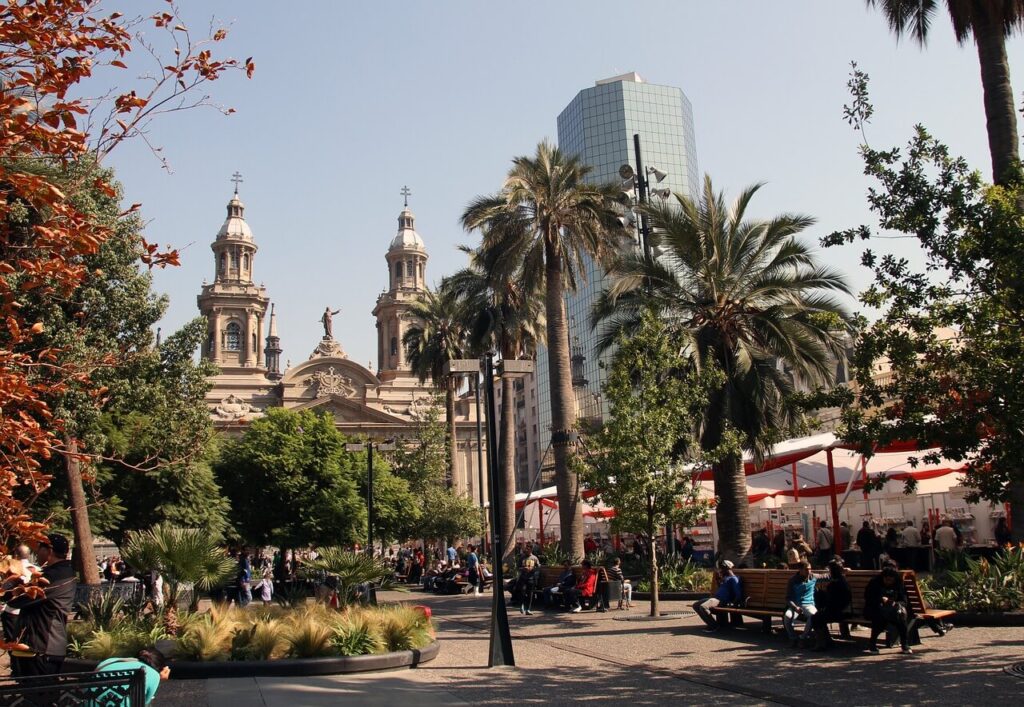Updated on December 22, 2023 by Lou Mac
It’s normal to feel a little apprehensive when you visit a new country. So if you’re planning on travelling to Chile and are asking yourself, “Is Chile safe?” let me reassure you.
While the definition of “safe” is pretty subjective, in this post we’ll go over different aspects of safety for travellers in Chile.
I’m sure by the end of this post you’ll feel more relaxed and prepared!
(Note this post was checked by a Chilean for accuracy before posting 😊)
Is Chile Safe in 2024: Yes!
If you want the quick, simple answer, then it’s yes, Chile is safe.
It’s one of the safest countries in South America, and according to the Global Peace Index it’s more peaceful than the United States.
Of course there are lots of things you need to watch out for (as we’re about to discuss), but people often make Chile out to be a lot more dangerous than it really is.
Let’s have a look at the different aspects of safety in Chile.
Petty Crime in Chile
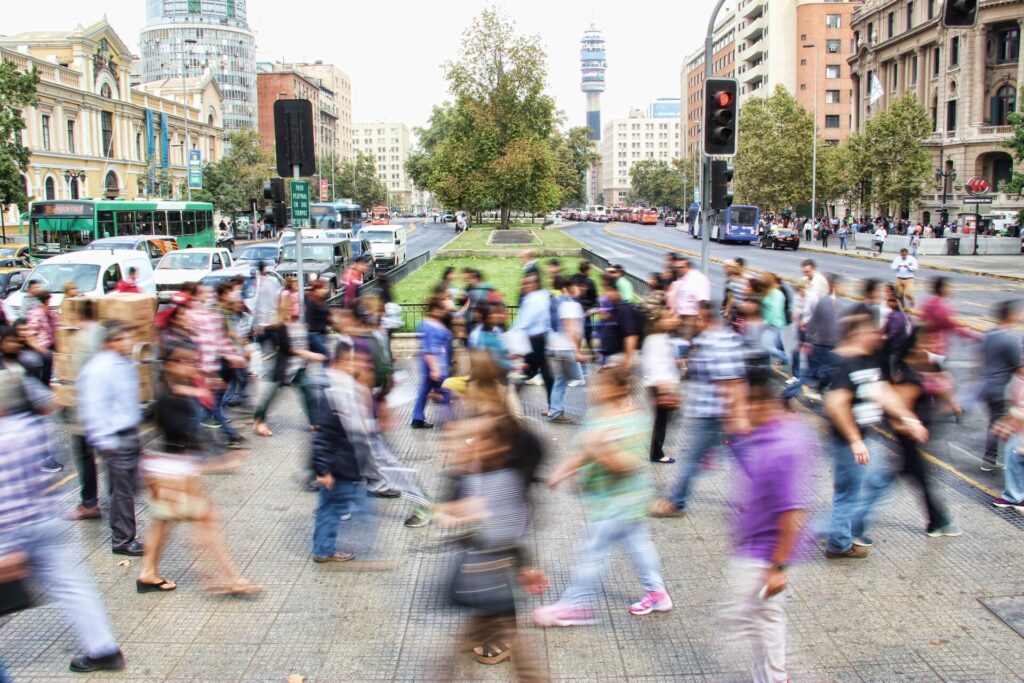
Petty crimes are “minor” criminal offences such as pickpocketing, stealing from vehicles and snatching bags. And to be completely honest, petty crime is rampant in Chile—if anything is going to happen to you, it’s most likely to be this.
Fortunately I haven’t actually experienced it myself here (though I have experienced it in other countries), but I’m constantly warned by friends and family and have heard plenty of stories about it happening.
As with any country, petty crimes are usually more common in bigger cities. This is no different in Chile (in Patagonia, however, these crimes are much less common).
Here are some ways to avoid petty crime:
- Do not use cell phones or cameras in busy areas
- Keep your bags in front of your body when moving around the city
- Be especially careful in crowds, public transport, or train and bus stations
- In restaurants, don’t leave your phone on the table next or hang your bag over your chair
- When seated, either have your bag in your lap or put the strap through your leg or the chair leg
- Be aware of strangers who start talking to you in public. It’s often harmless, but sometimes thieves work in pairs to distract you while the other robs you
- Be careful when entering and exiting vehicles, especially if you have luggage
- Never leave your belongings unattended
- Be careful of wearing flashy jewellery or showing signs of wealth
- Only carry the bare minimum when you go out
- Be wary of touristy areas, as thieves often target these places
- Where possible, don’t leave belongings in the car unattended. If you do need to, make sure they’re out of sight
- Make sure you have travel insurance that covers petty theft. This isn’t an “avoidance” tip, but it’s a great tip nonetheless!
Hopefully these tips aren’t putting you off—they’re just some good habits to get into when travelling anywhere, really.
Violent Crime in Chile
Violent crime is a crime in which harmful force is used or threatened on a victim. This sort of crime is less common in Chile than petty crime, but unfortunately still occurs.
Recently there has been an increase in portonazos and encerronas, which are forms of armed robbery and carjacking. Check out this video of an encerrona gone wrong for the attackers.
If the worst case scenario happens and you do get caught up in any sort of attack, it’s very important to not resist. Do not refuse to give up your belongings or try to fight the perpetrator.
I’m not an expert on the topic though, so it’s best to do your own research before you arrive!
Here are some ways to help avoid or deal with violent crimes in Chile:
- Always be aware of your surroundings
- Avoid walking around after dark
- Do not accept drinks from strangers in bars and do not leave your drinks unattended
- Be careful if you’re drinking, as attackers often target drunk tourists outside clubs and bars
- If possible, avoid waiting on the road for taxis/rideshares at night
- If you are driving a rental car, particularly around Santiago and Valparaíso, be wary of cars slowing right down or stopping on on/off ramps and in underpasses
- Know where is safe and where isn’t. Search on Google, talk to other travellers or—best of all—talk to locals about what areas you need to be cautious in (or avoid altogether)
Don’t let this put you off, though! It’s unlikely to happen if you follow all those safety measures, but it’s important to be aware.
Scams in Chile
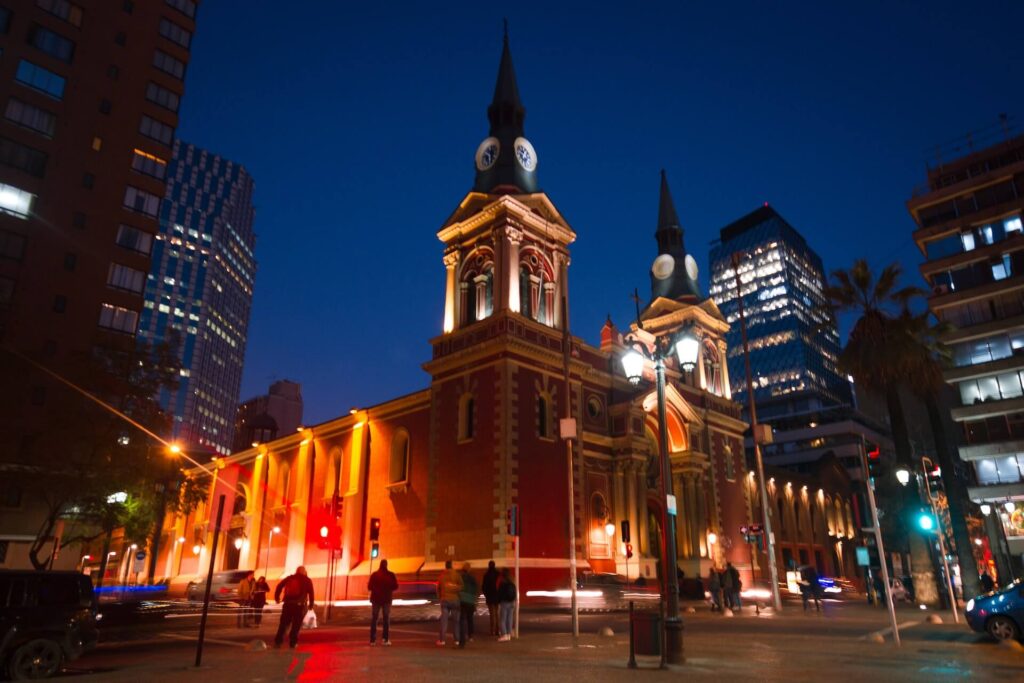
Something else to be aware of is getting scammed. And while this isn’t super related to what most people think of as “safety,” I’ve added it because it’s obviously not nice to get scammed!
The scams you’re most likely to encounter are getting given the wrong change (on purpose), being given a few fake bank notes, being charged a little extra or getting sold something that isn’t authentic.
Here’s some tips on avoiding being scammed:
- Know the general price for something before paying for it
- Count any change people give you to check it’s the right amount
- Give bank notes a quick check to see that they’re legit (check the watermark etc.)
- Know roughly how much a taxi trip will cost you before getting into one, and ask the taxi driver before you set off
Safety While Using Public Transport
There are times when you may want to avoid using public transport in Chile, like late at night or early in the morning, but in general it’s pretty safe.
Make sure you watch your belongings in bus terminals and train stations, as thieves often look out for travellers to pickpocket.
Once you’re actually on the bus or train you absolutely still need to be careful, especially if it’s crowded, though you can relax a little more when on intercity buses or planes. But again, it’s worth keeping an eye on your things.
Moral of the story: Keep an eye on your belongings!
Protests in Chile
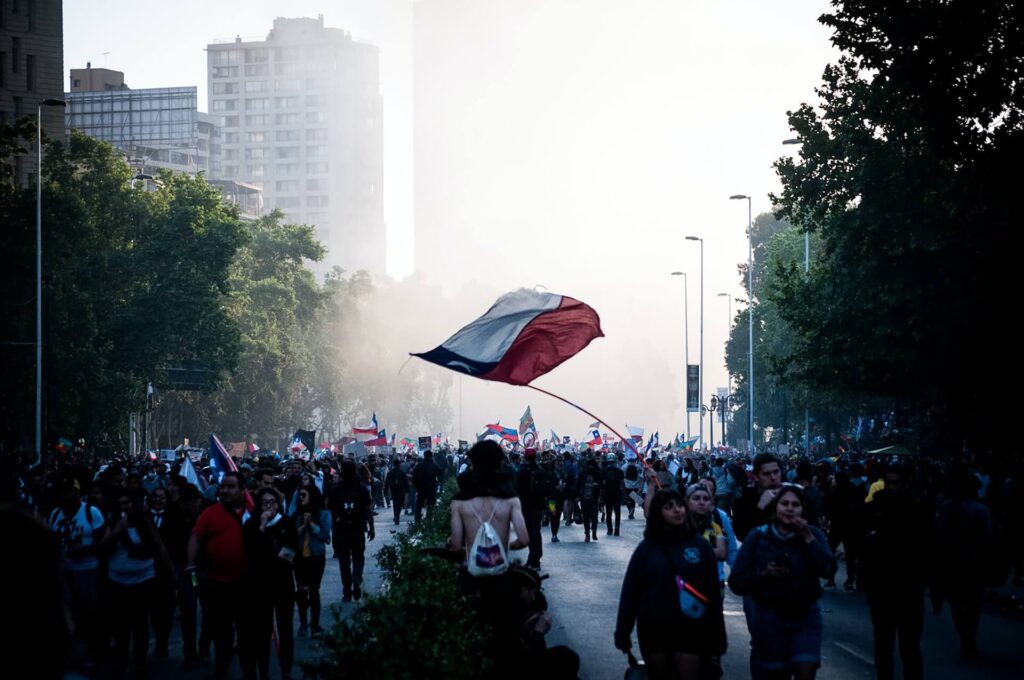
People are often warned about protests and demonstrations on their home country’s travel safety website. Personally this feels a bit like scaremongering, though I understand governments prefer to be cautious.
There aren’t (currently) any major protests going on, and even if there were, protestors are completely uninterested in travellers.
If you stay away from the protest sites you’ll be fine—in fact, you need to keep away from the protest sites, as it’s illegal for tourists to partake!
The biggest issue that these cause for travellers (unless of course it’s a really major protest) would be disturbances in transport.
Natural Disasters in Chile
Natural disasters are another thing to consider when visiting.
Chile is well known for being an earthquake-prone country. While it’s constantly getting tremors (and was actually the epicentre of the strongest known recorded earthquake in modern times 😅) the chances of a large earthquake striking while you’re there are low.
Here you can find live updates of earthquakes occurring around Chile.
It’s also got a ton of volcanoes, so it’s actually not uncommon that one erupts. In saying that, as long as you stay informed about any volcanoes you want to visit, you’ll be fine!
The Chilean government posts up-to-date alerts for every sort of environmental hazard—including volcano activity, forest fires, high temperatures and strong winds—which you can find here. (It’s in Spanish, but it can be deciphered with the help of Google Translate!)
Common Questions About Safety in Chile
Is Santiago, Chile Safe?
This isn’t a straightforward question, but for the sake of giving a straightforward answer: Yes, Santiago de Chile is safe.
There are lots of things you need to watch out for, but as long as you are aware of your surroundings and inform yourself before going, you will be fine.
Using the tips in this post is a good start—but it’s also important to check other resources!
Is Valparaíso Safe?
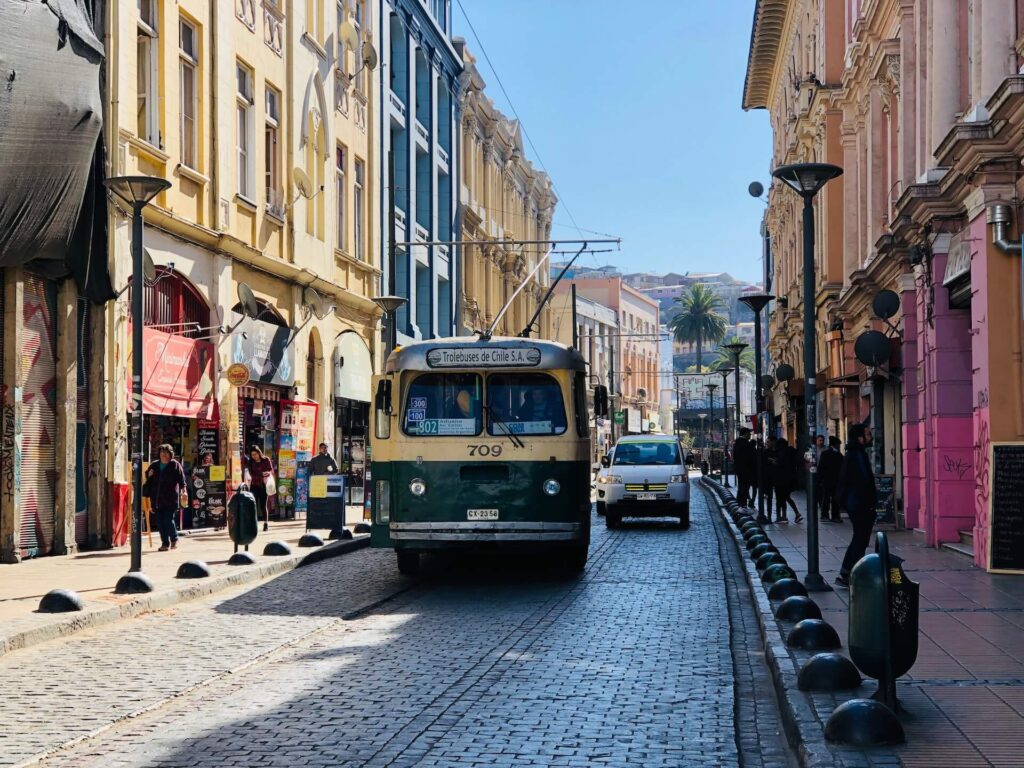
Valparaíso is also relatively safe.
There are however some areas that you might want to avoid (as with any city). Try to stick to the touristy places—though remember to be alert, because thieves target those areas.
Muggings happen during the day sometimes, so don’t carry a camera around your neck, display lots of jewellery or flash your phone about.
Is Chile Safe for Solo Female Travellers?
Chile is probably as safe as any place can be for solo female travellers!
I’ve done a bit of travel here alone, and I’ve never felt unsafe or vulnerable—in fact I feel safer being alone here than I did in other parts of South America.
Also, aside from some parts of Santiago, men don’t catcall here like they do in other places. And it’s always nice to not get yelled at for simply existing 🙃
That said, I would follow the usual precautions: Avoid going out later at night by yourself, keep an eye on your drinks at the bar etc. Here are some good general tips about solo female travel if you want to know a bit more!
Do They Speak English in Chile?
Chile is a predominantly Spanish-speaking country, however many people know basic English (and some even speak it as a second language).
According to EF Education First (an international education company), Chile has a moderate proficiency in English. They rank #45 in the world and #6 in Latin America.
In my experience it’s not that uncommon to come across Chileans (usually young Chileans) that speak English, but you definitely should not rely on that—and never expect or assume that someone speaks English.
So, although some people do speak English in Chile, I strongly recommend you learn at least basic Spanish before you go! You can download my free Guidebook to Self-Learning Spanish to get started.
If you’re not sure which kind of Spanish you should learn, check out this post.
So in summary: Yes, Chile is safe, though “safe” is subjective.
The most important things to remember are to be prepared, be aware of your surroundings and to not let fear hold you back!
Safe travels.

